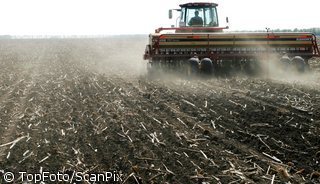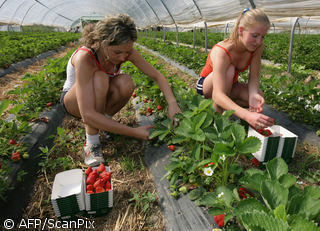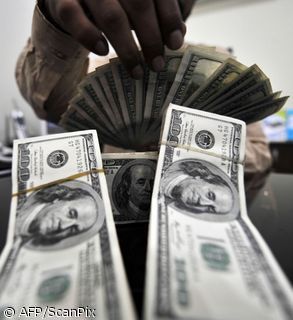WTO negotiators reach tentative accord on major global trade issues
Published:
5 August 2004 y., Thursday
Key trade ministers tentatively agreed Saturday on a plan to end export subsidies on farm products and cut import duties around the world, a key step toward a comprehensive global accord under discussion since 2001, trade officials said.
The deal was expected to be approved by all 147 members of the World Trade Organization later Saturday, opening the way for full negotiations to start in September.
"Developed countries have recognized that agricultural trade with a heavy subsidy component is not free trade," said Indian Trade Minister Kamal Nath.
But he said the United States, European Union and other developed countries will also benefit by removing heavy agricultural subsidies from their budgets.
Ken Ritter, president of the Canadian Wheat Board, said he's concerned the tentative deal would break a promise the Canadian government made to protect the grain marketing monopoly. In a breakthrough Saturday some 20 key countries approved a document setting out the framework for a legally binding treaty, World Trade Organization spokesman Keith Rockwell said.
The document will commit countries to lowering import duties and reducing government support in the three major areas of international trade - industrial goods, agriculture and service industries, such as telecommunications and banking.
The deal sets back in motion the long-stalled "round" of trade liberalization treaty talks that were launched by WTO members in Doha, Qatar, in 2001 but delayed by the collapse of the body's ministerial meeting in Cancun, Mexico, last year.
In agriculture, the document agrees to eliminate export subsidies and other forms of government support for exports, while making big cuts to other subsidies. It includes a "down payment" that would see an immediate 20-per-cent cut in the maximum permitted payments by rich countries.
Šaltinis:
Canadian Press
Copying, publishing, announcing any information from the News.lt portal without written permission of News.lt editorial office is prohibited.
The most popular articles
 In another move to strengthen the financial system, the Commission is proposing controls on credit rating agencies - private companies that evaluate financial risks for investors.
more »
In another move to strengthen the financial system, the Commission is proposing controls on credit rating agencies - private companies that evaluate financial risks for investors.
more »
 Monday 10 November saw a large report land on the desk of MEPs in the Budgetary Control Committee.
more »
Monday 10 November saw a large report land on the desk of MEPs in the Budgetary Control Committee.
more »
 EU wants G20 meeting to pave the way for reform of the international financial system.
more »
EU wants G20 meeting to pave the way for reform of the international financial system.
more »
 New Yorkers reflect on the election of Barack Obama as the 44th President of the United States.
more »
New Yorkers reflect on the election of Barack Obama as the 44th President of the United States.
more »
 The ability of the EU's common agriculture policy (CAP) to cope with the challenges of affordable food and climate change was discussed in Brussels 3-4 November.
more »
The ability of the EU's common agriculture policy (CAP) to cope with the challenges of affordable food and climate change was discussed in Brussels 3-4 November.
more »
 European Union economic growth should be 1.4% in 2008, half what it was in 2007, and drop even more sharply in 2009 to 0.2% before recovering gradually to 1.1% in 2010 (1.2%, 0.1% and 0.9%, respectively, for the euro area).
more »
European Union economic growth should be 1.4% in 2008, half what it was in 2007, and drop even more sharply in 2009 to 0.2% before recovering gradually to 1.1% in 2010 (1.2%, 0.1% and 0.9%, respectively, for the euro area).
more »
 There are an estimated 4-8 million immigrants working illegally in the European Union.
more »
There are an estimated 4-8 million immigrants working illegally in the European Union.
more »
 Hit by economic turmoil and the sharp global downturn, growth in the EU slows almost to a halt.
more »
Hit by economic turmoil and the sharp global downturn, growth in the EU slows almost to a halt.
more »
 The top priority is to cushion the impact of the financial crisis on jobs, purchasing power and prosperity of EU citizens.
more »
The top priority is to cushion the impact of the financial crisis on jobs, purchasing power and prosperity of EU citizens.
more »
 The International Monetary Fund has approved short-term financing to help emerging market economies weather the global financial storm.
more »
The International Monetary Fund has approved short-term financing to help emerging market economies weather the global financial storm.
more »